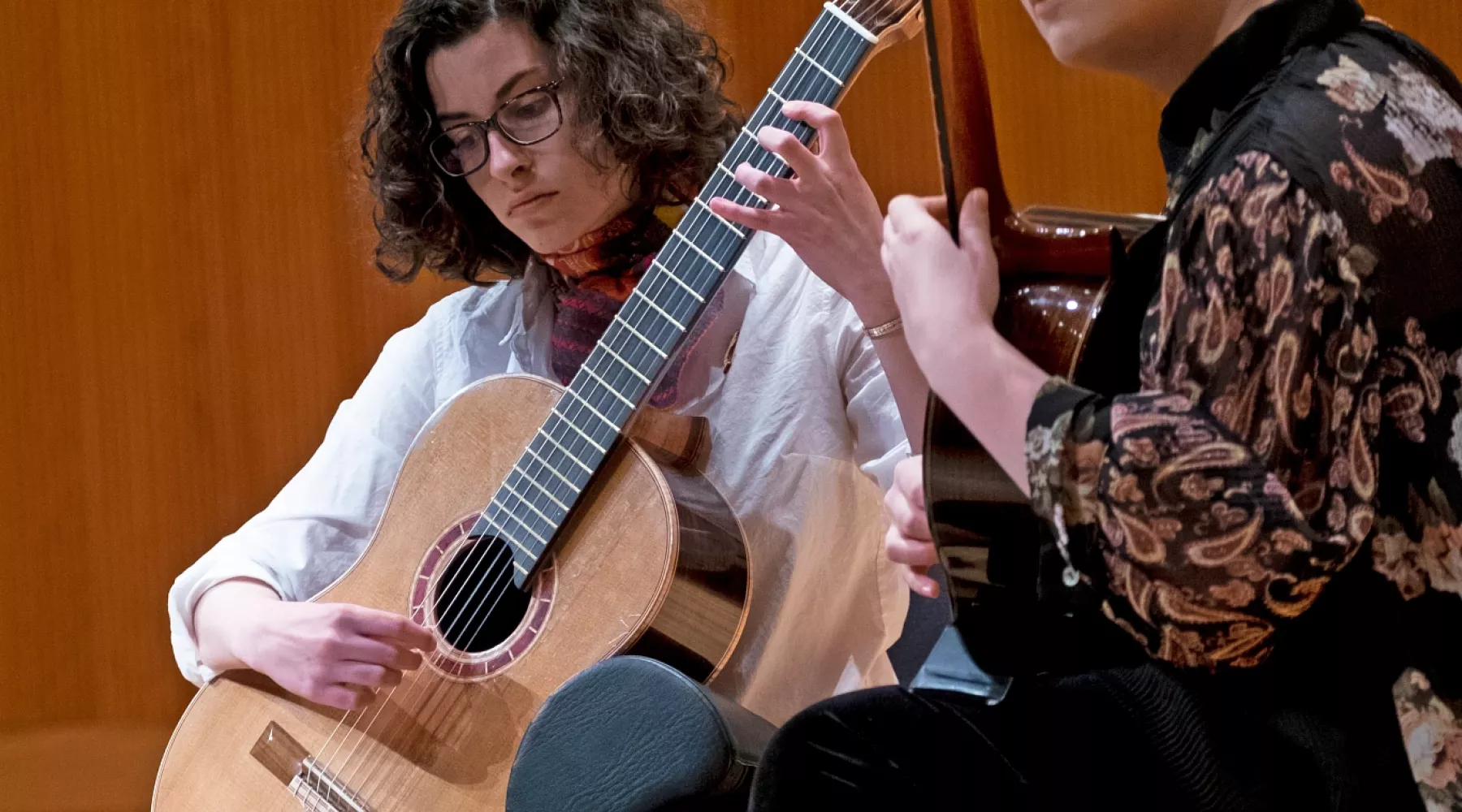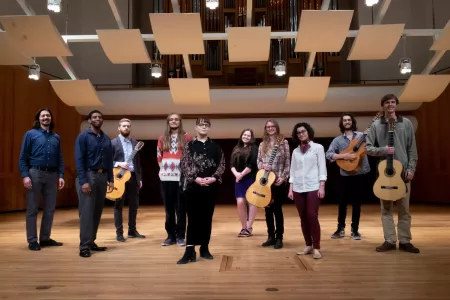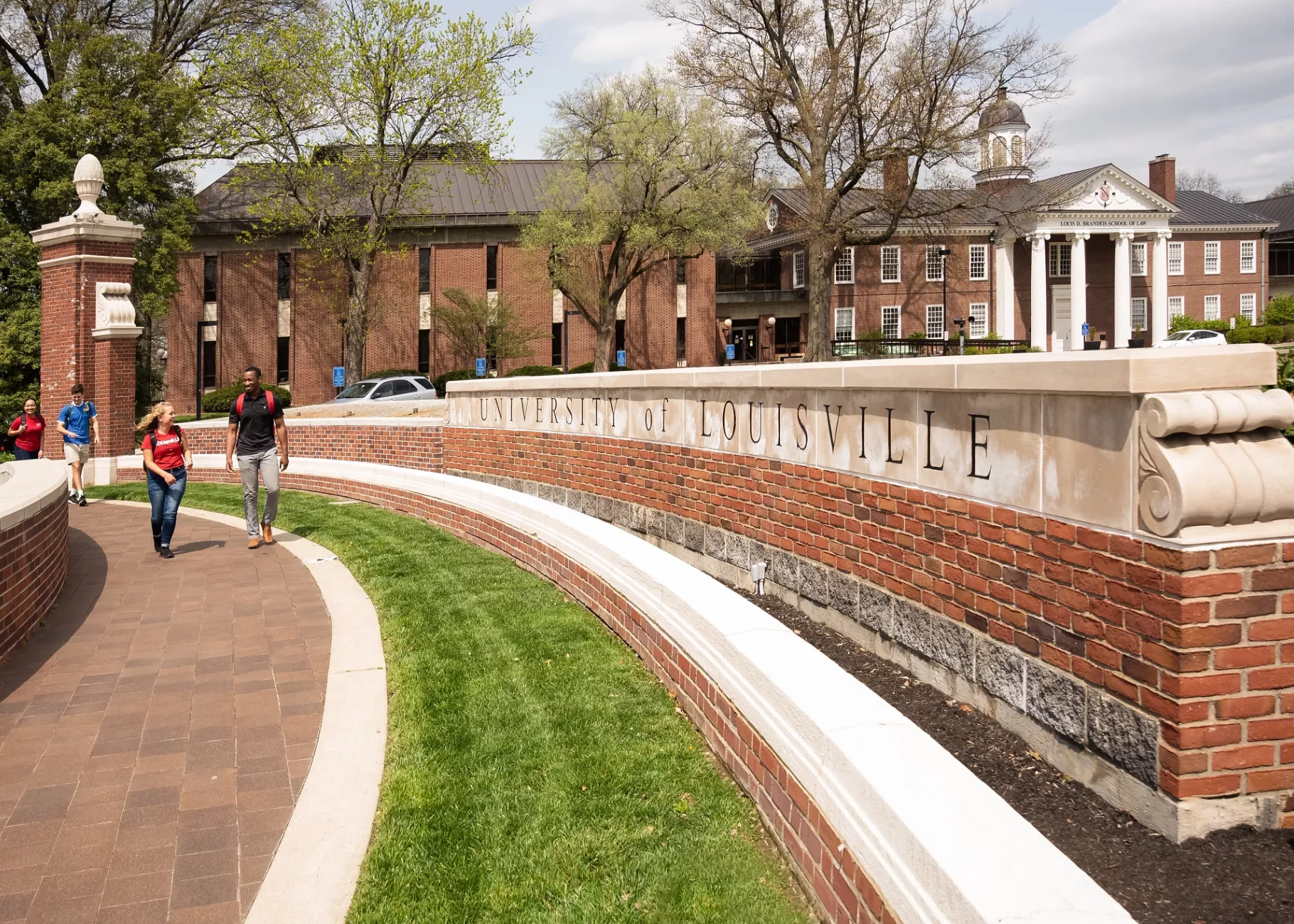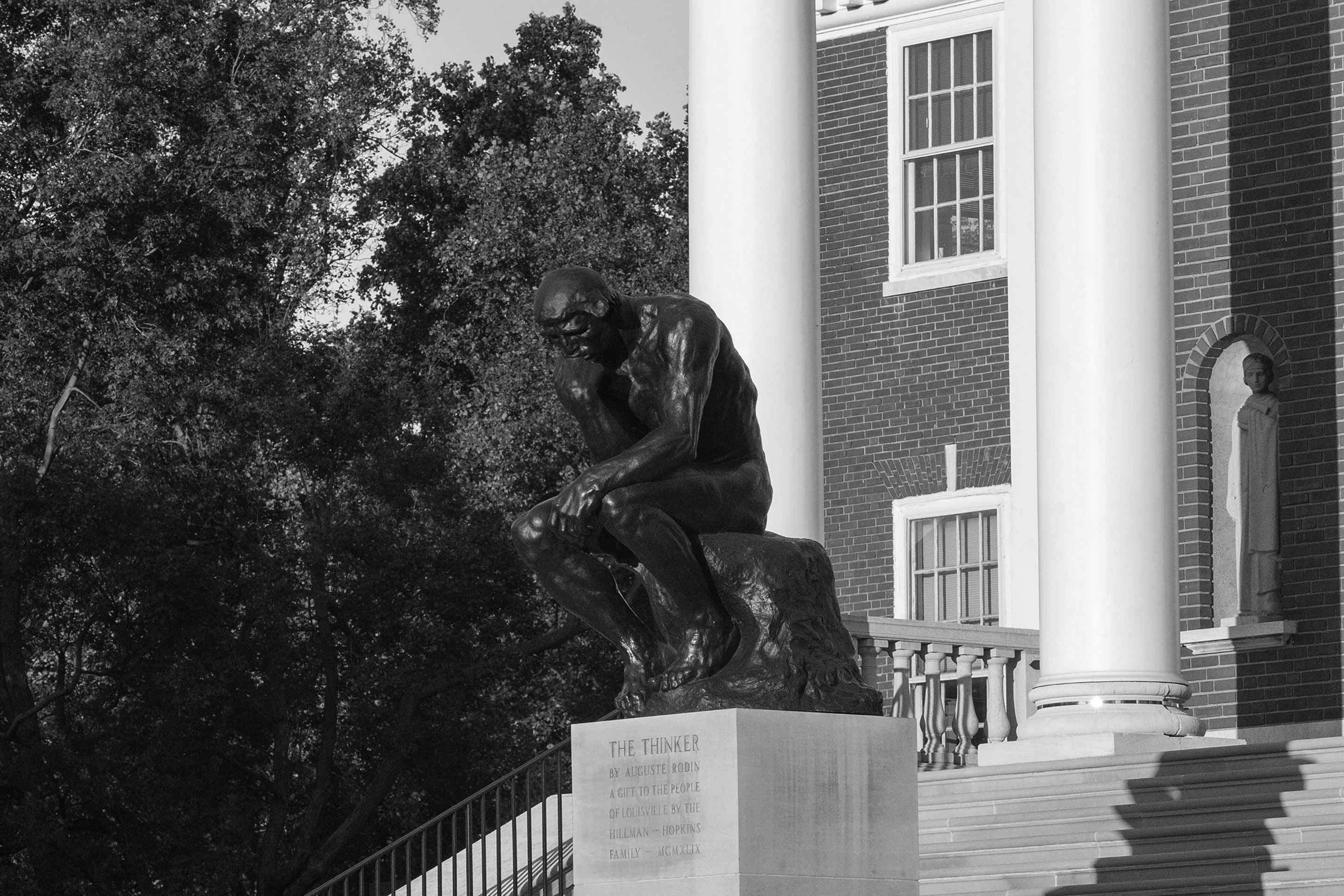
Music Therapy
About Us

Music therapy is the clinical and evidence-based practice of using music to address an individual’s treatment plan. Music therapy services can only be offered by a board-certified music therapist.
Music therapists address goals relating to the: physical, emotional, cognitive, and psycho-social needs of individuals using interventions like singing, playing instruments, movement, improvising, and songwriting. Individuals of all ages can benefit from music therapy. Research supports the efficacy of music therapy and continues to grow.
The music therapy program at the University of Louisville was established in 2000 and was the first to offer a music therapy program in the Commonwealth of Kentucky. We are approved by the American Music Therapy Association. The undergraduate and equivalency music therapy programs at UL prepare students to practice in a variety of clinical settings and to participate in research, program development, leadership, and advocacy opportunities. Students learn from a diverse and experienced faculty in partnership with outstanding and experienced music therapists in the Louisville community. Clinical training is an essential component of our curriculum.
We are also home of The UofL Music Therapy Clinic. The clinic is located within the school of music and is one of the only revenue producing music therapy clinics in the country. The clinic sees nearly 200 clients per week, both individual clients and groups at facilities. This allows students to have a wide variety of choices for practicum and clinical experiences. The clinic operates on a sliding fee scale in order to service a larger client base.
Research is an important aspect of our program, and we are proud to conduct music therapy research with our faculty, staff, students, and community partners.
Completion of the Music Therapy program qualifies students to take the music therapy board certification examination and earn the Music Therapist-Board Certified (MT-BC) credential. The MT-BC is a National Certification. Licensure not required in Kentucky, but licensure may be required in other states, see: https://www.cbmt.org/state-requirements/
Mission
The mission of the University of Louisville music therapy department is to inspire and empower future generations of music therapists to be confident risk-takers, bold creative-thinkers, and compassionate leaders in their communities.
Additionally, through hands-on experiences, the UofL music therapy department promotes health and well-being through musicking with socially-conscious and reflective music therapy approaches with individuals and communities in the greater Louisville area.
Vision
The vision of the University of Louisville music therapy department is to be the preeminent setting for music therapy education, research, and clinical services in the greater Louisville area. In addition, we strive to offer the music therapy profession with high quality, engaging, and meaningful continuing education programming.
The vision for classroom: To execute this mission the music therapy department incorporates experiential learning opportunities with active community partners. Our classroom culture fosters Socratic learning, mutual respect, and values the human experience.
The vision for community: To utilize our abilities and resources as musicians to enhance, promote, and inspire health to any and all. We also aim to represent and connect individuals and communities with the University of Louisville and the School of Music.
The vision for the profession: To mold music therapy professionals with transferrable skill-sets who are equipped to meet the needs of a changing world, who see challenges as opportunities, and commit to an adaptive and forward-thinking approach. Additionally, we aim to create opportunities for the music therapy profession to advance in the Louisville area by supporting and openly collaborating with therapists vested in our community.
Academics
Bachelor of Music in Music Therapy
The music therapy program is designed for students who want to provide therapeutic services to people using music. Students must be strong musicians and find satisfaction in using music to help with non-music areas and skills, rather than as a goal in itself. Students’ music skills will expand during their music therapy course work from performing on their principal instrument to also including functional piano, guitar, and voice skills, using other accompanying instruments such as the Q-chord and autoharp, and developing skill in using percussion instruments. The music therapy program requires good intellectual skills as music therapists are required to use analytical skills in determining clinical goals and writing skills in documentation.
Music therapy majors may work with any age group and with people with a variety of disabilities. As a member of a therapeutic team or private practitioner, the music therapist participates in the analysis of individual problems and the establishment of treatment goals before planning and carrying out music-related treatment. Music therapists may also do administration in various health-related settings and, with advanced degrees, may become university faculty.
Learn more about degree requirements and classes.
Faculty Information
| Lorna Segall, PhD, MT-BC | Director, Associate Professor of Music Therapy | 502-852-2316 | |
| Chris Millett, MM, MT-BC | Assistant Professor of Music Therapy | 502-852-0545 | |
| Brett Northrup, MT-BC | Lecturer, Music Therapy | 502-852-2316 | |
| Andrew Chapman, MT-BC | Coordinator of the UofL Music Therapy Clinic | 502-852-2122 |


